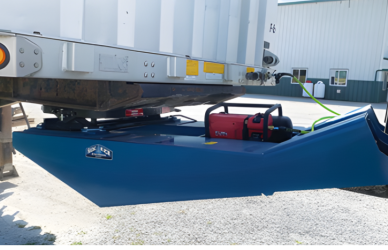In today’s rapidly advancing world, technology has transformed various industries, and trucking is no exception. One of the key technological advancements that have changed the trucking industry is Global Positioning System (GPS) technology. GPS has evolved significantly over the years, offering a myriad of benefits to the trucking sector.
Evolution of GPS Technology
The origins of GPS technology can be traced back to the late 1950s when the United States military began developing it for military navigation purposes. Initially known as NAVSTAR, the system consisted of a network of satellites orbiting the Earth, enabling precise positioning and time synchronization. Over time, GPS technology transitioned from being solely utilized by the military to being accessible for civilian use.
In the 1990s, GPS devices became more commercially available and affordable. This breakthrough allowed the trucking industry to harness the power of GPS for fleet management and route optimization. Trucking companies embraced GPS technology to track their vehicles’ locations, monitor driver behavior, and improve overall efficiency.
Enhanced Navigation and Route Planning
With the adoption of GPS technology, truck drivers bid farewell to cumbersome paper maps and complicated directions. GPS devices equipped with accurate mapping data became indispensable tools for truckers, guiding them through unfamiliar territories with turn-by-turn instructions. This advancement significantly reduced navigation errors, saving time and fuel while improving overall driver safety.
GPS-enabled route planning software became a game-changer for the trucking industry. By integrating GPS technology into fleet management systems, trucking companies could optimize routes based on factors such as traffic conditions, road restrictions, and delivery schedules. This optimization helped minimize mileage, reduce delivery times, and enhance customer satisfaction.
Real-Time Tracking and Asset Management
Another pivotal aspect of GPS technology in trucking is real-time tracking and asset management. GPS-enabled devices installed in trucks allow fleet managers to monitor vehicle locations and gather crucial data on driver behavior. This data includes speed, idle time, and instances of harsh braking or acceleration.
Real-time tracking provides fleet managers with valuable insights into driver performance, allowing them to identify areas for improvement and implement necessary training measures. Additionally, GPS technology enables the recovery of stolen or lost vehicles by pinpointing their precise location.
Safety and Compliance
In recent years, GPS technology has played an increasingly critical role in ensuring safety and regulatory compliance within the trucking industry. Electronic Logging Devices (ELDs) equipped with GPS capabilities have become mandatory in many regions. ELDs automatically record a truck’s driving time and monitor hours of service to prevent driver fatigue and maintain compliance with transportation regulations.
The evolution of GPS technology has had a significant impact on the trucking industry, revolutionizing operations and enhancing efficiency. From its early military applications to the widespread adoption in commercial vehicles, GPS has empowered truckers with accurate navigation, optimized routes, real-time tracking, and improved safety and compliance measures.
As technology continues to advance, we can expect further innovations in GPS technology, such as integration with emerging technologies like artificial intelligence and Internet of Things (IoT). These advancements will undoubtedly contribute to making the trucking industry even more streamlined, cost-effective, and sustainable in the future.











